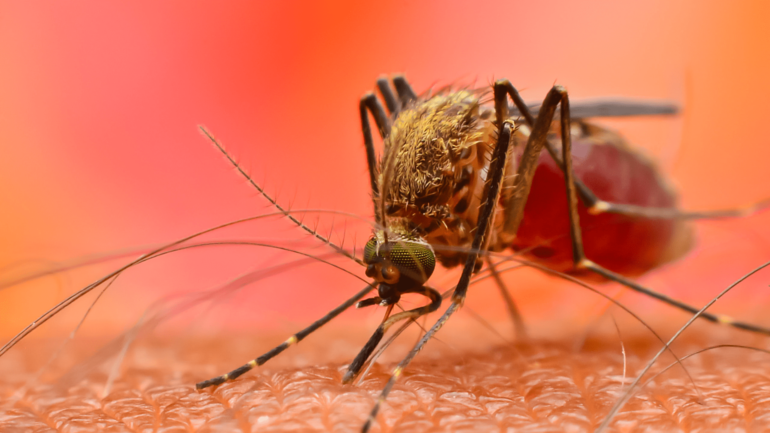Mosquitoes: the world’s deadliest animal. These tiny flying insects are vectors for dengue fever, yellow fever, Zika, malaria, and many other illnesses that affect millions of people around the world, with a significant morbidity and mortality burden. Because they spread disease when they bite people, understanding their feeding behavior is critical to reducing the harm they do.
But how to study mosquito feeding behavior without giving them a live meal? A collaboration between Rice University and Tulane University in the U.S. has developed a biomaterial that could eliminate the need for human volunteers or animal subjects in mosquito bite research.
“Several groups are dedicated to finding ways to stop mosquitoes from biting, but bringing new repellents to market is challenging,” said Prof Omid Veiseh, Rice University, corresponding author of the study published in Frontiers in Bioengineering and Biotechnology. “This study attempts to increase testing throughput and decrease dependence on human volunteers and animal subjects.”
Hydrogels mimicking humans
The team developed a platform that combined 3D bio-printed hydrogels designed to mimic human skin with video monitoring and computer vision techniques to analyze the data. The mosquitoes were filmed while they fed on blood perfused within the hydrogels, and the data was used to train a machine learning model that differentiated between mosquitoes that had fed from the hydrogels and mosquitoes that had not. This made it easier to analyze data on large numbers of feeding mosquitoes quickly and effectively, with an average precision of 92.5%.
The hydrogels can be perfused with different types of blood and other liquids, which makes it possible to study different species of mosquito that feed on different kinds of prey. It also made it possible for the scientists to validate the model by perfusing it with different fluids to show that the mosquitoes were attracted to the blood.
Road-testing repellents
The team tested the biomaterial by carrying out experiments comparing the mosquito reaction to sets of plain hydrogels, hydrogels coated in DEET, and hydrogels coated in a plant-based repellent. All the hydrogels were perfused with blood heated to 37 degrees Celsius. None of the mosquitoes given repellent-coated hydrogels fed on the blood, while 13.8% of the mosquitoes in the control cage did.
While this is a relatively low proportion, the authors suggested that this could be due to the restricted surface area of the hydrogel, which could be solved by scaling up. One of the advantages of the hydrogels is that they can be produced in large numbers at a low cost and refrigerated until needed.
Although the platform is optimized for use in the laboratory, the authors suggested that it might be possible to adjust it for use in the wild, more closely mimicking real-world conditions of disease transmission. However, the authors pointed out that this would require additional work.
“All of the experiments used lab strains of mosquitoes, and the majority involved one particular species: Aedes aegypti, the vector of the yellow fever virus, dengue virus, Zika virus, and others,” said Prof Dawn Wesson, Tulane University, co-corresponding author. “It may take time to optimize our experimental platform and machine learning model to study other species. Also, since the behavior of laboratory strains sometimes differs from that of mosquitoes found in the wild, it would be important to validate our results on wild mosquito populations.”
“Overall, our results suggest that our experimental platform could be scaled up and adapted to screen different compounds for their effects on mosquitoes,” said Veiseh, looking forward to future research.
“Also, the machine learning model we developed can automate experimental analysis and provide results far more quickly and consistently than a human could,” added Dr. Kevin Janson, first author of the study. “We hope that this platform could rapidly identify promising candidates for more effective repellents to decrease the spread of disease in the future.”
More information:
Kevin Janson et al, Development of an automated biomaterial platform to study mosquito feeding behavior, Frontiers in Bioengineering and Biotechnology (2023). DOI: 10.3389/fbioe.2023.1103748
Citation:
Human test subjects may no longer be needed for mosquito bite trials, thanks to invention of new biomaterial (2023, February 9)



